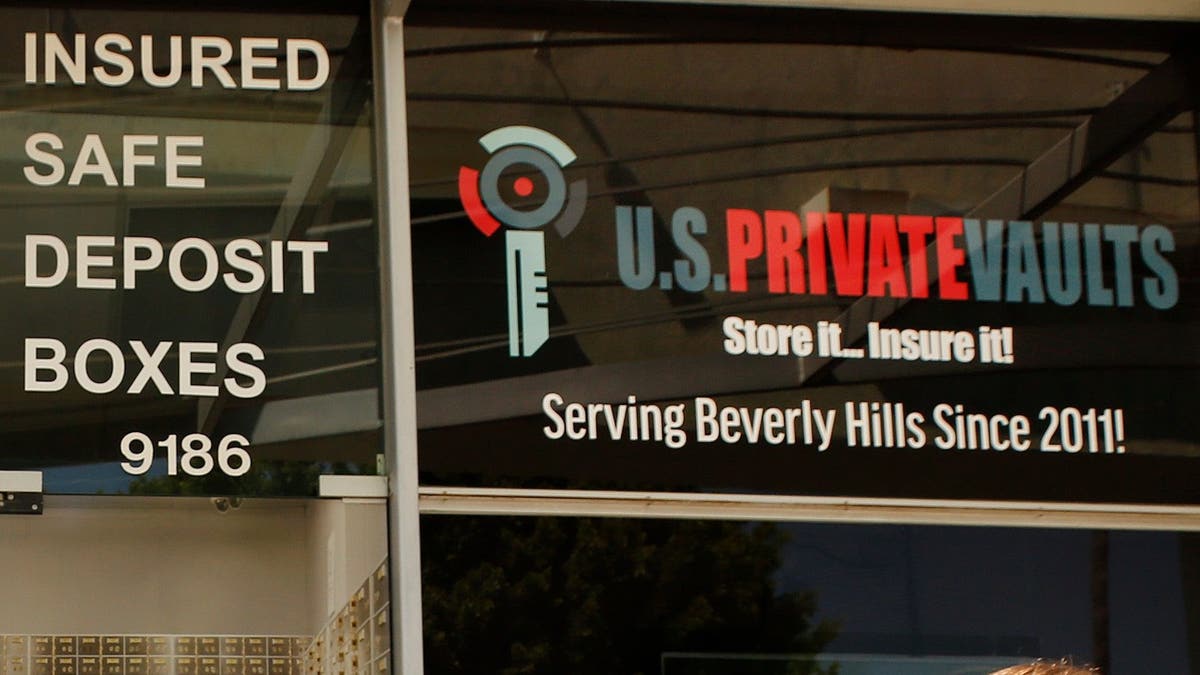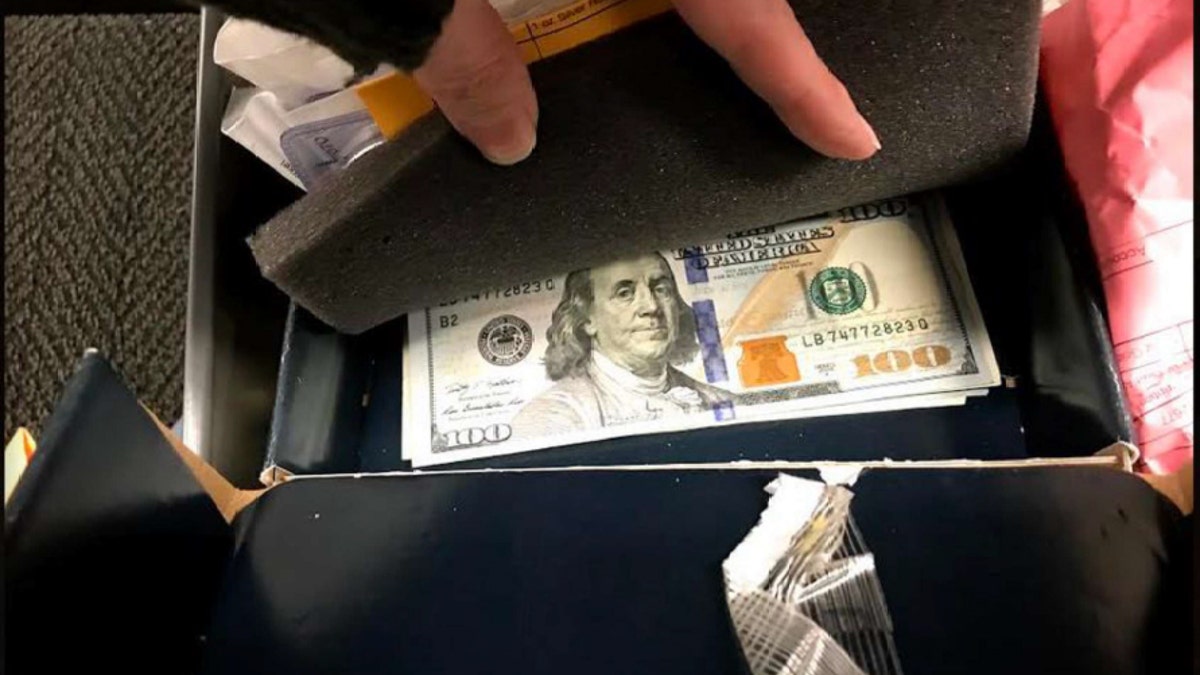FBI sued after allegedly losing hundreds of thousands in rare coins during raid
Don Mellein and Jeni Pearsons are suing the government alleging the FBI seized, then lost their property through the "shady" process of civil forfeiture.
Two Americans are alleging the FBI lost or stole their property after seizing it through a "shady" process.
"All we know is that their property was in a box and safe before the FBI broke into the box," Joe Gay, an attorney with the nonprofit law firm Institute for Justice, told Fox News. "Once the FBI broke into the box, we honestly don't know exactly what happened."
"We don't know if they lost it. We don't know if somebody pocketed it and walked away," he continued. "We have no way to know."
The Institute for Justice filed two lawsuits Friday on behalf of clients who had property seized from their safety deposit boxes in a March 2021 FBI raid on U.S. Private Vaults, a Beverly Hills–based company. After prevailing in court, and the FBI agreeing to return their property, both Don Mellein and Jeni Pearsons discovered some of their property was missing and suspect the FBI's haphazard raid or sticky fingers are to blame.
"There’s literally been no explanation," Pearsons said. "I think you have to assume that it's the simplest explanation, and I think, unfortunately, the simplest explanation is they took it or lost it."
WATCH MORE FOX NEWS DIGITAL ORIGINALS HERE
Mellein, a 79-year-old retired civil servant, kept cash and 110 gold coins worth hundreds of thousands of dollars in his box to safeguard his financial security. He invested in the precious metals with the proceeds after he and his wife sold their Malibu home in 2002.
Pearsons and her husband Michael Storc similarly rented a security deposit box in 2017 as a financial safeguard, storing around $20,000 in silver and $2,000 in cash.
Neither Mellein nor Pearson were charged with a crime. The FBI had been investigating U.S. Private Vaults, which shut down following the raid and ultimately pleaded guilty to conspiracy to launder drug money.
After the FBI seized their property along with 1,400 other customers, Mellein and Pearsons received a notice stating the FBI wanted to keep their property through a process known as civil forfeiture.
Pearsons said she'd never heard of civil forfeiture before. But after doing research, she discovered that one of the options to reclaim items presented on the notice essentially gave the FBI all rights to decide what's done with the property.

The FBI seized an estimated $86 million in cash from hundreds of safe deposit boxes at U.S. Private Vaults in a March 2021 raid. (Al Seib / Los Angeles Times via Getty Images)
"It was very disingenuous and shady even," she told Fox News. "It's the least transparent process. It's not something that you would do if your intent was to find out who these items belonged to."
The FBI did not respond to Fox News' request for comment.
'LEGAL THEFT': TEXAS POLICE SEIZED MAN'S LIFE SAVINGS. NOW THE STATE IS PUTTING HIS CASH ON TRIAL
Pearsons teamed up with the Institute for Justice to fight for her property, while Mellein hired an attorney and spent $40,000 to reclaim his items. They both prevailed, but when they went to the agency’s Los Angeles office to claim their property, they realized some of their items were missing.
Mellein was given the cash from his box, but none of his 110 gold coins. The FBI seemed to have no record of the missing coins as they weren’t listed on the property receipt of his box’s contents. When pressed for a copy of the video inventory of the box, the FBI said that in its rush to process so much property, it had abandoned its initial plan to film the process, completing inventory paperwork instead, according to the Institute for Justice.
"What we learned was that their incentive to forfeit everything they found crowded out their obligations to safeguard their property," Gay, the Institute for Justice attorney, told Fox News.
He said the search became "hectic" and "frenzied" as agents rushed to seize what would end up being nearly $86 million worth of assets.

Jeni Pearsons said the FBI had "no explanation" for where the $2,000 it seized from her safe deposit box went. (Institute for Justice)
"They crowded dozens of agents into this vault, and they spent the next week ransacking through the boxes, looking for cash, looking for property to forfeit," Gay said.
He said the FBI inventories listed items like "miscellaneous coins" or "miscellaneous items" which were "utterly useless" for the intended purpose of protecting owners’ property.
Mellein sued the government to force the return of the coins in August 2021. Months later, the government found and returned 47 of them but told Melleine he must dismiss his lawsuit and file a claim with the FBI in order to track down remaining 63.
In March 2023, after filing his claim, the FBI told Mellein it had investigated itself and that there was no evidence that it had done anything wrong or careless, according to the Institute for Justice.
THE FBI TOOK HER LIFE SAVINGS. NOW SHE’S FIGHTING TO HELP OTHERS GET THEIRS BACK.
"The FBI had no reason to go through my box and they were careless in losing my savings," Mellein said in a press release. "For months I was told they didn’t have any of my coins before they eventually found some of them."
"I’m disappointed that I have to sue again in order to get property back that should have been given back to me over two years ago," he added.
Similarly, when Pearsons went to claim her property in 2021, she noticed the $2,000 in cash from her box was missing.
"’They've never said, ‘oh, no, that wasn't in the box.’ They just didn't give it back," Pearsons told Fox News. "And they told us at the time that someone from the U.S. Marshal's office was going to call and talk to me about it, and then no one ever called."
"Could be that the way that the FBI and the law enforcement carried this out is just really sloppy work," she added. "Or there was never any intention of giving it back, and so it really didn't matter because they thought they just got to keep everything. So to them, there was one pile."
Gay said regardless of how the property went missing, the lack or legal recourse for owners is wrong.
"We don't know for sure how the property disappeared, we just know it disappeared," he said. "And whether it's negligence, whether it's something worse, the government shouldn't be able to rely on its own shoddy recordkeeping to avoid responsibility for losing their property."
The Institute for Justice's lawsuits not only aim to get Mellein and Pearson's property back, but also to give victims of civil forfeiture the ability to challenge agencies if their property goes missing.
"We're basically fighting against the notion that people shouldn't have a remedy against the government when the government takes their property," Gay said.
CLICK HERE TO GET THE FOX NEWS APP
Both Mellein and Pearson said the most eye-opening part of the entire experience was feeling law enforcement cheated and lied to them.
"When I was growing up, we trusted and respected law enforcement, especially the FBI," Mellein said. "I’m not filing this lawsuit just for me, I’m fighting for a better world where people can trust law enforcement to do the right thing. I’m fighting to make law enforcement better."
"I would love to be able to be thankful to law enforcement for taking care of whatever criminal circumstance there was and for making sure that my involvement with it didn't have to be painful," Pearsons said. "But rather, they’ve literally stolen."
"They don't even have the ability to show me a video of them opening this up and going through it to say, ‘Oh, no, look, see, it wasn't here,’" she added. "It's just it's so absolutely galling."




